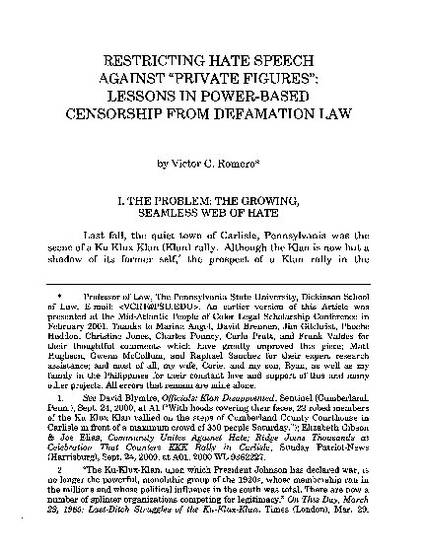
This article examines the debate between those who favor greater protection for minorities vulnerable to hate speech and First Amendment absolutists who are skeptical of any burdens on pure speech. The author also provides another perspective on the debate by highlighting the "public/private figure" distinction as an area within First Amendment law that acknowledges differences in power, a construct anti-hate speech advocates should use to further their cause. Specifically, the author places the "public/private figure" division in a theoretical and historical context and then provides empirical support for the thesis that whites enjoy a more prominent societal role and greater access to media than nonwhites. Finally, the author applies the "public/private figure" analogy to the context of websites, arguing that white supremacist websites should be censored while anti-majority ones should not.
Available at: http://works.bepress.com/victor_romero/40/

Reprinted in Swanson, The First Amendment Law Handbook (West 2002-2003 ed).